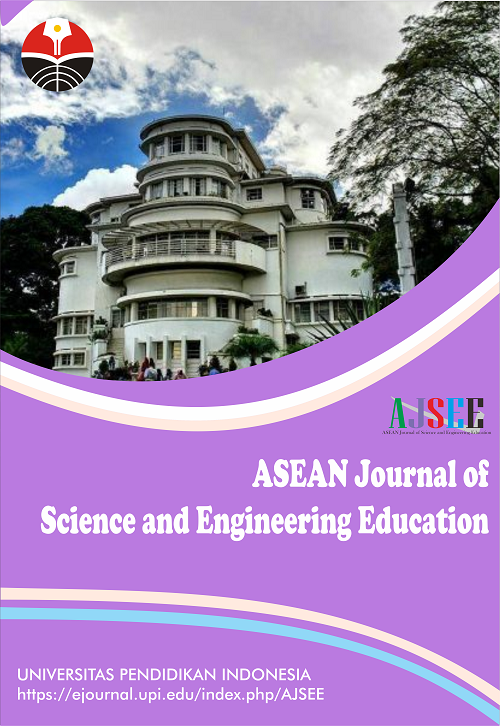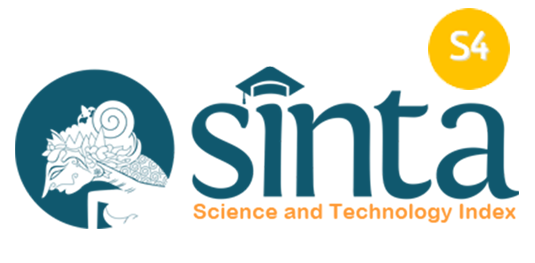Designing English Education Game Application for Early Childhood
Abstract
This research aims to design a game app design that can help increase children's interest in learning English. The research method used descriptive qualitative by looking at early childhood learning during this pandemic, especially learning English, with additional data from literature studies. The system development method uses the waterfall method consisting of five stages: Requirement Analysis, Design, Implementation, Testing, Maintenance, and object approach method with tools such as use case, activity diagram, and interface design to produce an orderly system. The design of the game application is named GUTHEWORDS. It is expected to help increase children's interest in learning English to guess vocabulary such as animal names and numbers in English to help improve teaching success by making the teaching method fun and interesting for children. Through the implementation of learning through this game, it is expected to make it easier for children to learn to read, remember and hear some vocabulary in English well, also expected to explore the potential, creativity, and interest of children in learning English.
Keywords
Full Text:
PDFReferences
Aliyyah, R. R., Rachmadtullah, R., Samsudin, A., Syaodih, E., Nurtanto, M., & Tambunan, A. R. S. (2020). The perceptions of primary school teachers of online learning during the COVID-19 pandemic period: A case study in Indonesia. Journal of Ethnic and Cultural Studies, 7(2), 90-109.
Churiyah, M., Sholikhan, S., Filianti, F., & Sakdiyyah, D. A. (2020). Indonesia education readiness conducting distance learning in Covid-19 pandemic situation. International Journal of Multicultural and Multireligious Understanding, 7(6), 491-507.
Lucas, F. M. M. (2017). The game as an early childhood learning resource for intercultural education. Procedia-social and Behavioral Sciences, 237, 908-913.
Yunus, M., Astuti, I. F., & Khairina, D. M. (2015). Game edukasi matematika untuk sekolah dasar. Jurnal Informatika Mulawarman, 10(2), pp. 59-64.
Kristanto, A., & Mariono, A. (2019). Development of education game media for xii multimedia class students in vocational school. Journal of Physics: Conference Series, 1387(1), 012117.
Calle-Bustos, A. M., Juan, M. C., García-García, I., & Abad, F. (2017). An augmented reality game to support therapeutic education for children with diabetes. PloS One, 12(9), e0184645.
Hawkins, R. D., Ferreira, G. A., & Williams, J. M. (2019). The development and evaluation of ‘Farm Animal Welfare’: an educational computer game for children. Animals, 9(3), 91.
Iida, H., & Khalid, M, N, A. (2020). A paradigm shift from optimal play to mental comfort: A perspective from the game refinement theory. International Journal of Informatics, Information System and Computer Engineering, 1(1), 48-81
DOI: https://doi.org/10.17509/ajsee.v1i2.33754
Refbacks
- There are currently no refbacks.
Copyright (c) 1970 Universitas Pendidikan Indonesia

This work is licensed under a Creative Commons Attribution-ShareAlike 4.0 International License.














